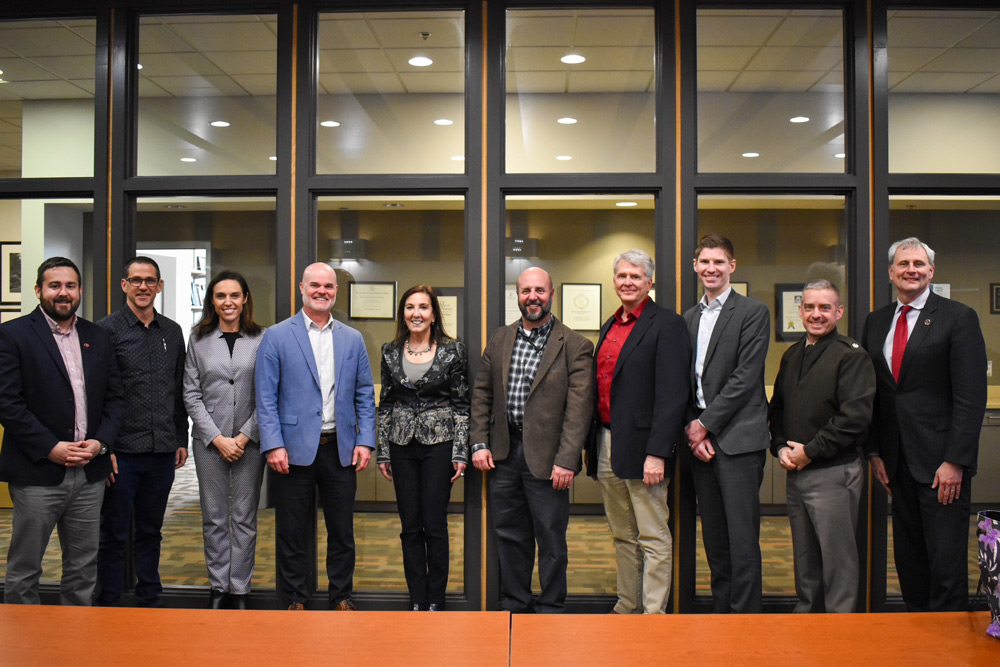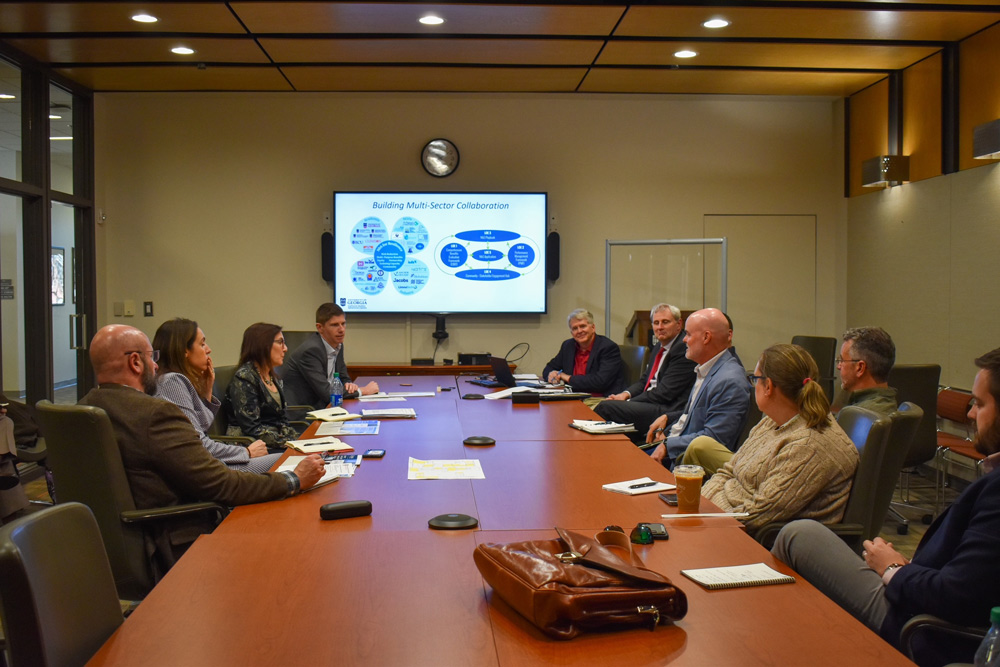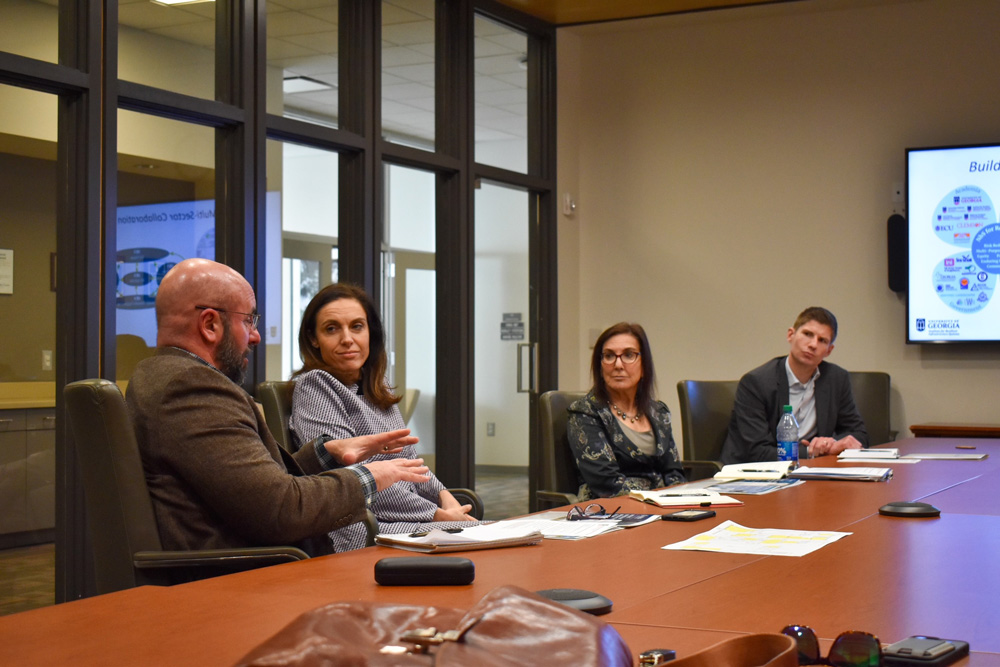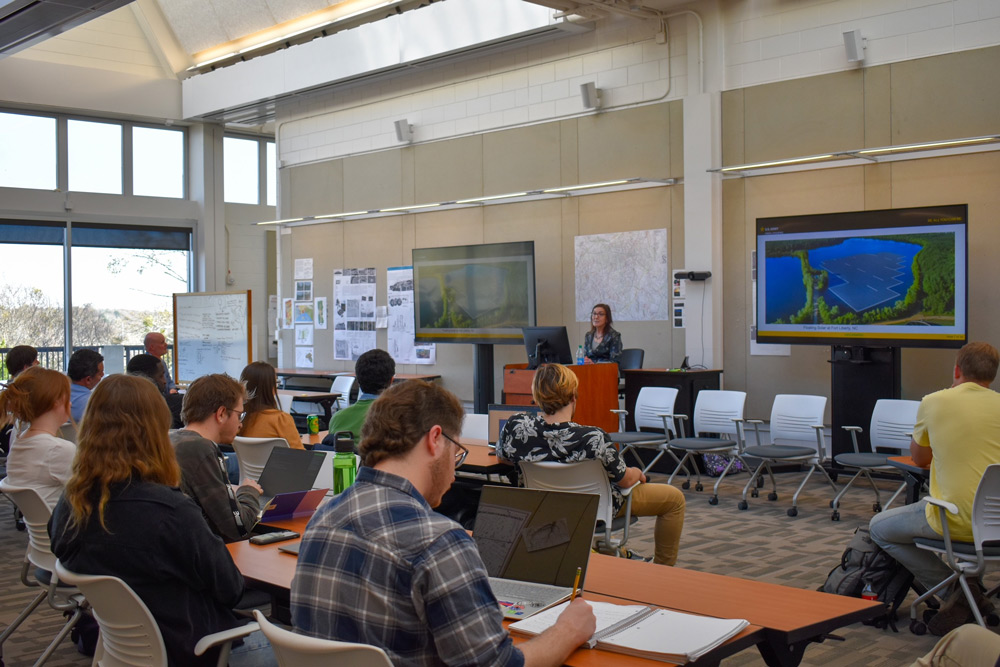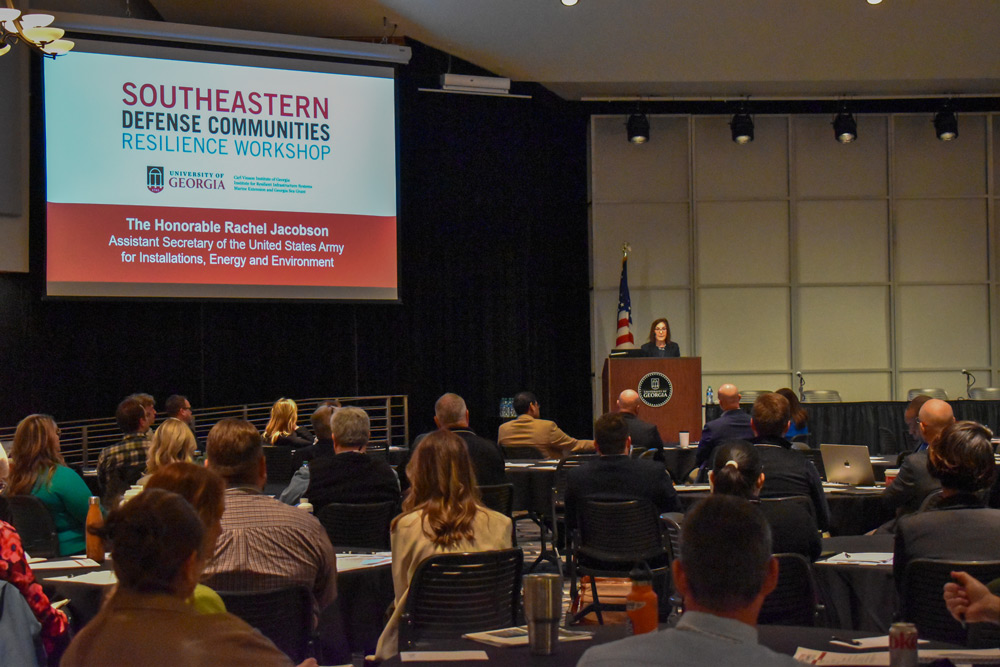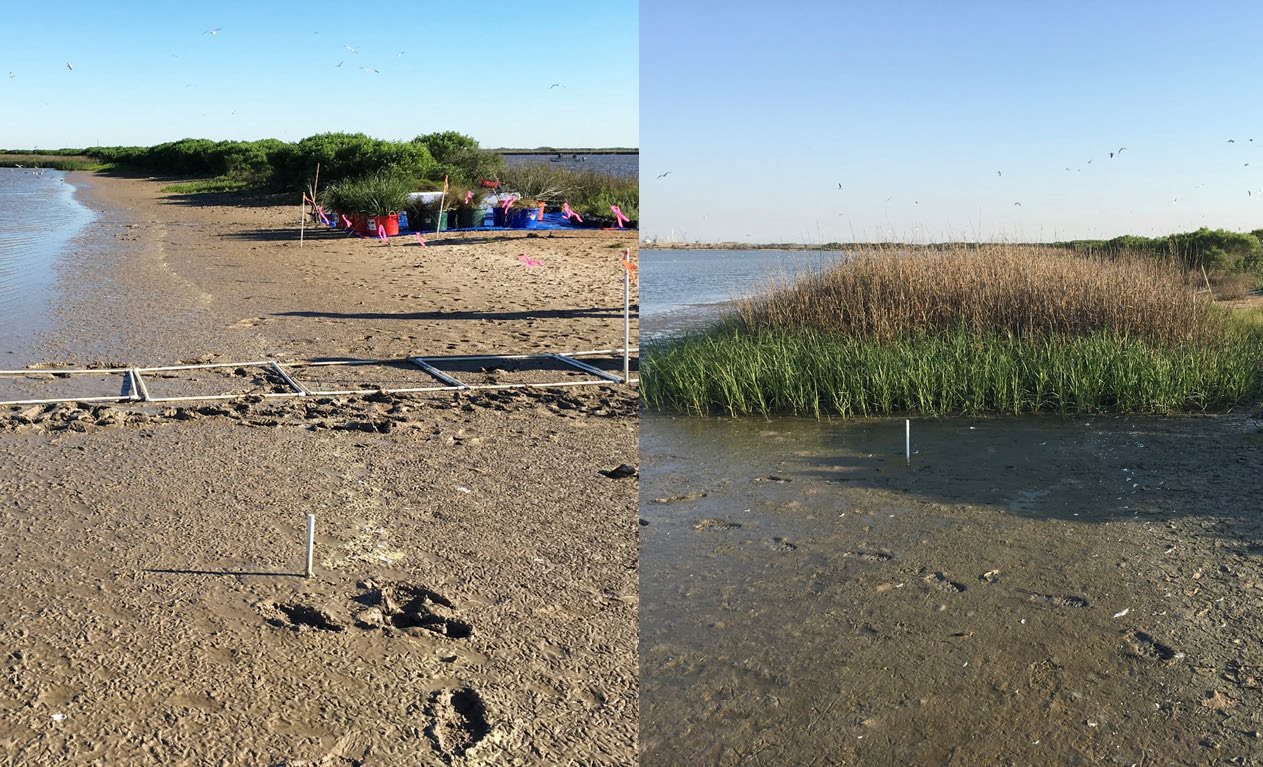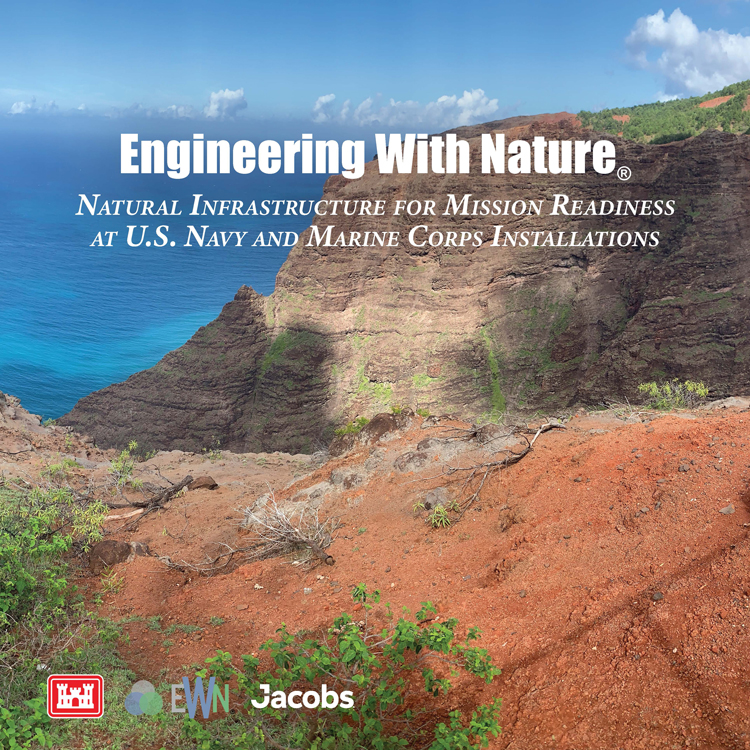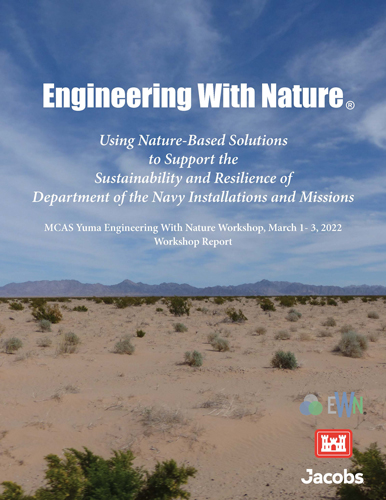Army missions face a myriad of challenges stemming from natural hazards and aging infrastructure necessitating innovative and integrated solutions. In a recent engagement at the University of Georgia (UGA), the Honorable Ms. Rachel Jacobson (ASA IE&E) recognized a need to increase Engineering With Nature (EWN) support across Army installations. By integrating natural infrastructure projects, installations will fortify their resilience strategies. Ms. Jacobson’s visit comprised several engagements at UGA , including meetings with faculty from UGA’s Institute for Resilient Infrastructure Systems (IRIS) and EWN leadership, a lecture to graduate students, participation in a podcast, attendance at a poster session, and a keynote presentation.
During Ms. Jacobson’s keynote at the Southeastern Defense Communities Resilience Workshop, she announced an Interagency Governmental Service Agreement (IGSA) between the Army and UGA. This landmark agreement empowers UGA and its partners to provide technical support, bolstering Army installations against natural hazards over the next 10 years.
Embracing scalable natural infrastructure solutions reduces long-term maintenance costs while enhancing ecological stewardship. Furthermore, these efforts contribute to improved well-being among personnel, fostering a resilient defense community. Ms. Jacobson’s commitment to leveraging natural systems for the purpose of increasing resilience is well encapsulated in her statement,
“We have to exist in this world in a new way. We have to think differently. We have to act differently. And we have to make sure that we align with nature so that we can all adapt to the new world.”
The Honorable Ms. Rachel Jacobson, Assistant Secretary of the United States Army Installations, Energy and Environment
Value of Natural Infrastructure at Army Installations:
- Scalability reduces costs and enables adaptation to evolving conditions.
- Self-healing properties mitigate risks and reduce maintenance expenses.
- Ecological benefits including habitat creation.
- Improves personal well-being for those living and working at DoD facilities.
Learn more about Engineering With Nature for the Department of Defense.
